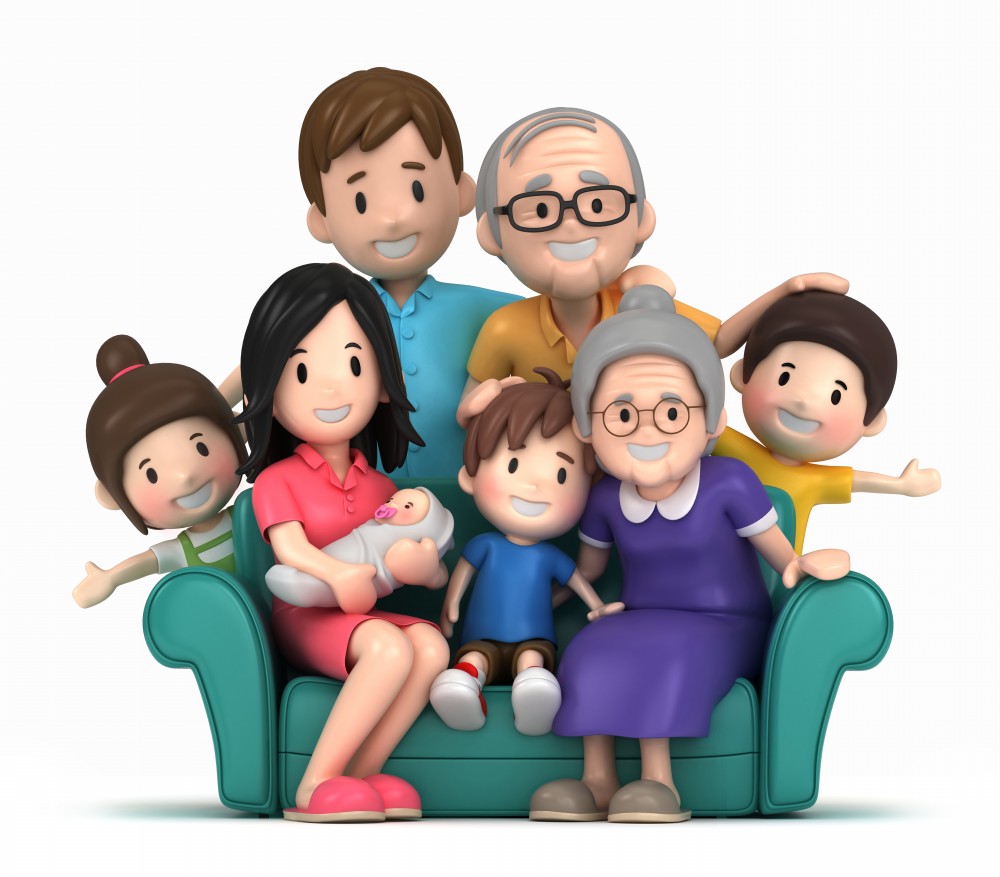How to Talk to Your Family About Your Mental Illness

It's important to know how to talk to your family about your mental illness. Some families have a long history of mental illness and may talk openly about mental illness diagnoses, symptoms and treatment. Though some diseases are hereditary, many of us need to break the news to our family members that we have a mental illness. Either way, sometimes it can be difficult to talk to your loved ones about your mental health. The way you grew up, the relationship you have with your parents and the closeness of your extended relatives all contribute to the way you talk to your family about your mental illness.
Talking to Your Parents About Your Mental Illness
Sometimes it's most difficult to talk to our closest family about mental illness. When I was first diagnosed with depression, I hid it from my father. I was afraid that he would worry too much about me, and I worried that he would think that he did something wrong. Misconceptions and stigma about the origin and cause of mental illness caused me to put off talking to my family about my mental illness until my symptoms had progressed and I got a diagnosis of bipolar. By that point, it was necessary to tell my dad what was happening with me, and to elicit his support. Two years had elapsed between my first and second diagnoses and though my father could tell something was wrong, he didn't know how to start the a conversation with me.
In order to avoid losing critical support due to your own silence, it is helpful to talk with parents about your mental illness. It can be helpful to remove emotion from the conversation so that you can tell them about your diagnosis, treatment plan and overall outlook. You may also share books and websites about your disease with them if they aren't well-versed on mental illness. Sharing third-party sources also takes some of the pressure off of you as the child, and introduces objective information. Most parents only want to help, and talking to them about your mental illness will open up the possibility of a more honest relationship.
Sharing Your Mental Illness With Extended Family
Talking to your extended family about your mental illness can raise a number of issues, both for you and for your family. If you have a large number of relations, group dynamics will always play a factor in who you talk to and how much you tell them. If your aunt is a busybody, you might want to leave her out of all but the most general information about your condition. Have an uncle who's been in therapy? He might be most understanding about your illness, or at least part of your treatment, and a good candidate for frequent conversations.
If you find it difficult to make friends or meet new people -- and many people with mental illness struggle socially -- you may find that your extended family gives you a great opportunity to find a confidant. There's no law that requires people to be close with their families, and certainly no rule that one's whole family be involved in their mental illness. However, a shared background and the benefit of family gatherings create the opportunity for beneficial sharing.
Find Tracey on Twitter, Facebook, and her personal blog.
APA Reference
Lloyd, T.
(2015, May 6). How to Talk to Your Family About Your Mental Illness, HealthyPlace. Retrieved
on 2025, April 19 from https://www.healthyplace.com/blogs/relationshipsandmentalillness/2015/05/how-to-talk-to-your-family-about-your-mental-illness
Author: Tracey Lloyd
Family as specific and basic social network system exhibits great opportunity to overcome life difficulties. But its interpersonal relationship might be the impassable hindrance to share some concerns about hidden emotional secrets and issue, such is the immense burden of emotional torment and dilemmas, as well. However, talking openly with any close family members is the best way to soften mental illness's struggles and sufferings, which ones additionally worse the course and definitive prognoses of respective mental disorder. So it is advisable to share some information with any family members, in order to take any emotional support that improve the psychiatric treatment of pertain mental disorder. Nevertheless, it ought to have some limits and it is preferable to take any subtle and delicate details for oneself as personal dice for hard and unpredictable moment through daily family life.
My family has abandoned me for years and I'm feeling emotionally alone in an awkward marriage. I have my Faith to keep me going. OCD is a lonely struggle and I'd love to make a friend on-line. Maria.
Hi Maria, I'm here if you like to chat.I can relate.
Do you feel like an outcast Christine? Let's please talk. Maria.
Coming out with Bipolar was initially tefyriring. At first, the ratio of successful discussions vs. tailspins was unpleasant. Over time, the positive responses far outstripped the negative. I've had a lot of practice being casual but direct about it.One comment I still don't know how to manage is but you don't act Bipolar! I generally explain that I'm a really good performer and generally bank my energy so I can make public appearances. People have a hard time reconciling the pleasant person before them and the pacing basketcase who talks to herself at home. I guess that's what being an informed and informative Bipolar is partially about helping people bridge the distance between observation and the condition's reality.
